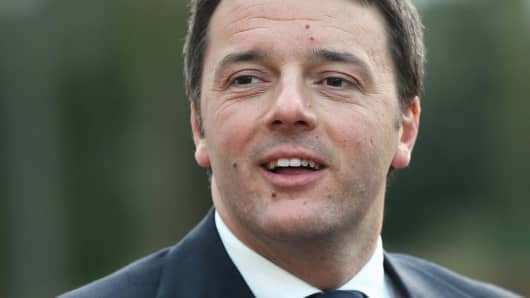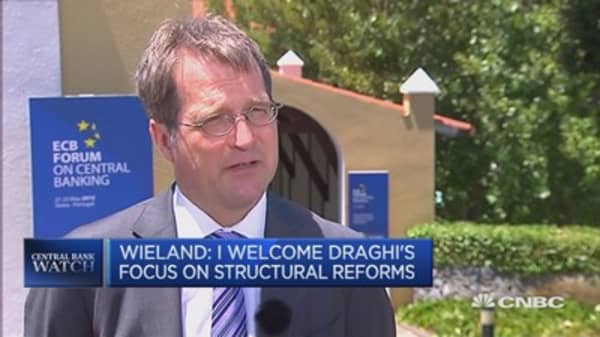So how is the populist vote fairing in Italy? It feels remiss not to talk about Beppe Grillo and the 5* Movement following the shake-up in Spain's regional elections last weekend. The 5* movement probably wins the prize in Italy for the major party most likely to tear itself apart. Though I'll admit It's been a close contest. Despite this, they has been polling around 20 percent of the vote. Clearly trailing the PD by a wide margin but still the second most popular party in Italy.
Before this weekend, I'd read numerous reports suggesting that the wave of populism in Europe has peaked. If that's the case I'd argue the wave has a long way to crash.
Read MoreOlive oil crisis?
Nick Spiro of Spiro Sovereign Strategy warned this week that regional elections in Spain were a warning for bulls."Just as Italy's new electoral law will result in more stable governments, Spain's political scene is splintering, boding ill for the implementation of further fiscal and structural reforms."
I absolutely share his sentiment on Spain, let's hope this weekends vote doesn't lead us to raise similar concerns about Italy.
Watch this space.




